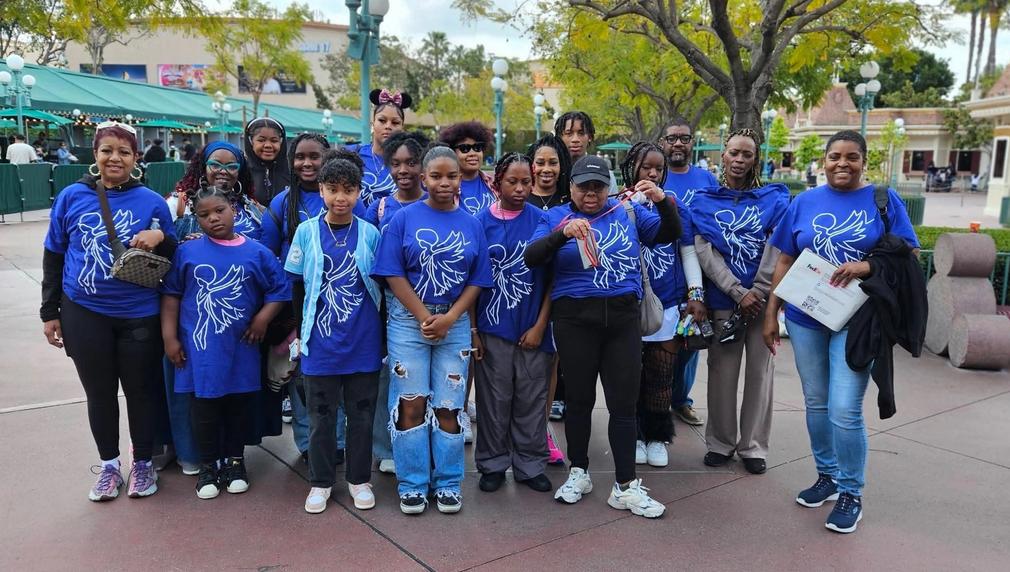Phenomenal Angels of the Community
This grant will support Phenomenal Angels of the Community™, a culturally responsive, trauma-informed initiative that teaches middle and high school youth how to build healthy relationships, communicate effectively, and prevent interpersonal violence. The program equips participants with critical life skills that promote emotional well-being, self-confidence, and long-term gender equity in underserved communities.

What is the primary issue area that your application will impact?
Community safety
In which areas of Los Angeles will you be directly working?
South LA Other
In what stage of innovation is this project, program, or initiative?
Expand existing project, program, or initiative (expanding and continuing ongoing, successful work)
What is your understanding of the issue that you are seeking to address?
Phenomenal Angels addresses the urgent, often overlooked issue of unhealthy relationships, interpersonal violence, and emotional trauma among youth in underserved communities. Many of the young people we serve grow up surrounded by trauma, instability, and normalized violence, yet have limited access to healing-centered, culturally relevant education and support.
We recognize that these challenges are rooted in systemic inequities and generational trauma, not isolated events. Without early, intentional intervention, youth face increased risks of academic failure, mental health struggles, and harmful relationship patterns.
Our goal is to break these cycles by equipping youth with the tools, confidence, and support to build healthy, respectful relationships—beginning with themselves and extending to their peers, families, and communities.
Describe the project, program, or initiative this grant will support to address the issue.
To address the urgent need for healthy relationship education and trauma-informed support among underserved youth, Phenomenal Angels will implement an initiative that equips middle and high school students with the knowledge, tools, and support to build healthy relationships and prevent interpersonal violence.
This workshop series covers topics such as emotional regulation, communication, boundaries, consent, peer pressure, anger management, developing resilience, identity, and gender respect. Delivered by trained facilitators in trusted settings, the program blends interactive activities, real-life scenarios, and culturally grounded dialogue to engage youth in a meaningful, safe, and affirming way.
In addition to core workshops, the program includes youth stipends, family engagement opportunities, and enrichment outings, to deepen learning and build trust. Post-program evaluations will measure changes in knowledge, confidence, and behavior - ensuring that the impact is not only immediate, but lasting.
Through this initiative, we aim to promote a generation of young people who are confident, self-aware, and equipped to build respectful relationships, laying the groundwork for long-term healing, equity, and community transformation.
Describe how Los Angeles County will be different if your work is successful.
If our work is successful, Los Angeles County will be home to a generation of youth who are emotionally resilient, self-aware, and equipped to form healthy, respectful relationships - reducing the prevalence of interpersonal violence, bullying, and trauma that currently burden many of our communities. Schools will become safer, more supportive environments where students can thrive both academically and socially, and families will be more connected, communicative, and empowered to support their children’s growth.
Our success will also mean stronger community ties, increased gender equity, and more inclusive systems of support that reflect the lived experiences of historically marginalized youth. In the long term, we envision a county where young people lead the way in building cultures of empathy, accountability, and healing - transforming not just individual lives, but the collective well-being of entire neighborhoods.
Approximately how many people will be impacted by this project, program, or initiative?
Direct Impact: 50
Indirect Impact: 500